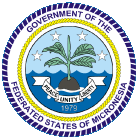About the FSM Insurance Board
FSM Focusing on Japanese Captives:
FSM is a relatively new captive insurance domicile. Our aim is to become the premier Japanese Captive domicile in the next few years. Our captive legislation and regulation are enacted and promulgated with the view to offer the best yet safe and sound regime to assist and attract Japanese captives. The FSM has treasured its long historical and mutual relationship with Japan; and creating an environment where Japanese corporations feel confident to call FSM “captive home” is just another way for both countries to deepen the everlasting mutual relationship. Our captive regulations are specifically designed to be strong, stable and yet flexible enough to adapt and capitalize on the industry needs, especially for Japanese captives. Captive insurance is a key strategic initiative of for the country’s top leaders, President Mori and Speaker Figir.
The FSM Insurance Board:
The FSM Insurance Board or Commission (Board) is established pursuant to the FSM Insurance Act of 2006 or Public Law 14-66, as amended. Public Law 14-66 also enacts a new Title 37 of the Code of the Federated States of Micronesia to establish the Insurance Law for the country. The Insurance Board is responsible for its policy and affairs and has the powers conferred upon it pursuant to 37 FSMC.The statutory mandates of the Board are:
- To regulate the Insurance Industry;
- To license and register insurers and intermediaries;
- To protect the policyholders; and
- To ensure a sound and safe development of the insurance industry.
The Board comprises of three voting members and the Commissioner as the ex officio member. The three voting members are appointed by the President subject to the advice and consent of Congress. The President appoints the Commissioner, who is responsible to the Board for the execution of its policy and the performance of duties and exercise of powers conferred by 37 FSMC. The Board is authorized to promulgate regulations to carry into effect the objectives of the Act. If and when necessary, orders may be issued to carry out the powers and duties. The Board is supported by highly motivated, dedicated, capable, and professional staff. If and when needed, 37 FSMC allows the Board to seek other administrative support from the President in order for the Board to conduct and carry out its mandates effectively and efficiently.
As such, the Board serves as a quasi oversight regulatory and supervisory body of the insurance system for the country. The regulatory functions involve setting fair and equitable yet effective and efficient standards to ensure confidence and protection of insuring public interests. For example, optimal solvency standard should lead and ensure that insurance companies operate in a fiscally responsible manner so after taking customer’s money (premiums), the companies can pay claims if and when arise. Our regulatory approach goes hand-in-hand with the supervisory approach in that while setting standards has its virtues and is an essential regulatory function, incorporation of a greater understanding of business needs is equally important for us. Allowing companies to assume the risk profiles within prudential limits is necessary for development, which we believe should be regulated to a certain extent to ensure a sound, stable, healthy, confident and equitable insurance system for the FSM. Simply put, business risk has its virtues and must be treated differently than fraud and mismanagement, the later being some of the key reasons for regulatory functions. Relying on market discipline, transparency and full information disclosure without divulging confidential informationis also important for we believe the playing field must be level.
Our objectives are:
- To protect the public interest – by ensuring that the insurer is financially solvent and able to meet obligations;
- To promote fairness and equity – by ensuring members of the industry are fair and equitable in their dealings;
- To foster competence – by insisting on a high level of professional competence and integrity; and
- To be the key player in the development effort – by encouraging the industry to take an active yet sound approach in the development of the industry system.
To achieve the above objectives, our approach, moving forward, is to develop the insurance industry to become stronger and more resilient through measures aimed at increasing financial discipline, raising public accountability, enhancing management efficiency, among others.
Changes may be necessary to accommodate for changing situations and circumstances, moving forward. The regulatory and supervisory framework requires incremental changes for there is a need to adapt and evolve to keep pace of the benefit from the underlying trends and developments in light of the global rapid changes affecting the insurance industry. Our ultimate goal is nevertheless to ensure the interests of policy owners are protected and that confidence is maintained. To achieve these, our strategic focus includes fostering a competitive environment, compliance, financial surveillance, risk management practices, corporate governance, management quality, and public accountability as the way toward strengthening the financial resilience of the insurance system.
